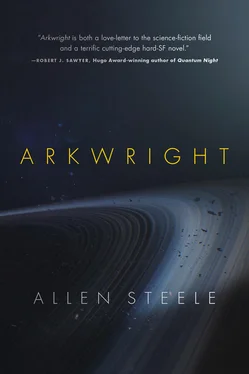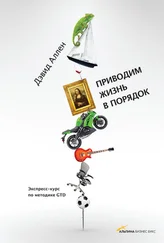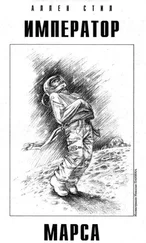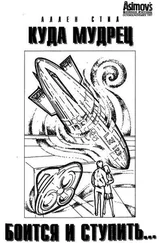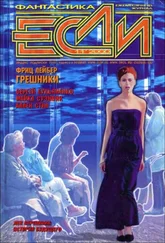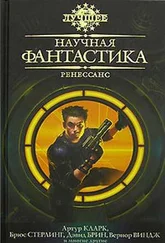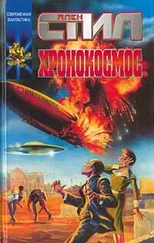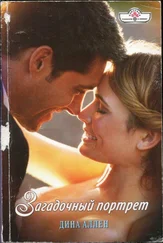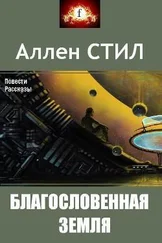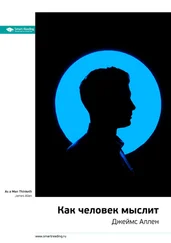“That’s interesting.” George smiled around the stem of his pipe. “I’m in my third trimester at MIT as a physics major. That’ll practically make us neighbors.”
“Not going to college.” Harry looked down at his tray as if he’d just admitted something embarrassing. Then he brightened and smiled at Maggie. “But hey, once you get a job at Astounding, maybe you’ll buy a story I’ll send you!”
Maggie looked interested. “You want to be a writer?”
“I already am a writer,” Harry insisted. “I just haven’t sold anything yet.”
“I’m writing too,” Nat blurted out before he could stop himself. Maggie raised an eyebrow, and Harry cast him an incredulous look as if to say, Yeah, sure you are . “No, really. I’ve been trying to get something in at Amazing, but haven’t had any luck yet.”
“Shouldn’t be too hard,” Harry said dryly. “Palmer will publish anything.”
Nat felt his face burn. Amazing had been declining lately, its new editor evidently preferring cheap melodramatics to scientific accuracy. But he caught the wry grin on Harry’s face and realized that the jab hadn’t been intended to be mean. Harry might be a potential rival but might also be a friend.
“So I guess we’re Futurians now,” Maggie said. “Or at least fellow travelers, so far as the convention organizers are concerned.” She looked dejected at the fact that they’d been thrown out of the hall.
“No, we’re not.” Harry shook his head. “Look, I know what I said back there about joining ’em, but they’ve got their own little group already, and they’re not going to let us in just because I started handing out their pamphlets.” He gave Nat and Maggie an apologetic look. “Didn’t mean to get you guys tossed out. Thanks for sticking up for me.”
“No sweat,” Nat said. “I don’t like bullies, that’s all.”
“Besides, we’re not missing anything,” Maggie said, and she smiled when the other three regarded her with disbelief. “I mean, we’ve met each other, haven’t we? That’s worth my dollar.”
“Yeah, maybe you’re right.” Harry nodded in agreement. “Who needs the Futurians? Maybe we should start our own little club.”
George closed his eyes, turned his face toward the ceiling. “The Legion of … Space.”
“Naw.” Harry shook his head. “Uh-uh. Jack Williamson wrote a story with that name some years ago.”
“I know.” George grinned. “I really liked it. And that’s what I’m interested in—space.”
“So am I.” Nat smiled at him. “Y’know, this might sound crazy, but I really believe there’s a chance someone might go to the Moon. Maybe even by the end of the century.”
A nod and a knowing wink from George. “Sooner than that, I think.”
“I like that name,” Maggie said. “The Legion of Space, I mean.”
“Okay, but Harry’s right. It’s got to be something else.” Nat thought about it for a moment. “The Legion of Time.”
“Jack Williamson again.” Harry used a fork to spear an olive from Maggie’s salad and fling it across the table at Nat. “C’mon, there’s got to be—”
“The Legion of Tomorrow,” Maggie suggested as she moved her salad away from him.
No one said anything for a second. The four of them looked at one another, tasting the name on their tongues. “I like it,” Nat said. “I like it a lot.”
“All right, then … that’s who we are.” Maggie held out her hand, palm down. “The Legion of Tomorrow.”
Nat didn’t hesitate. He reached out his hand, placed it on top of Maggie’s. George grinned and extended his own hand to rest it on top of Nat’s. Harry gave the other three a look, bemused that anyone would take him seriously, but then he joined the circle with his own hand.
“Forward the Legion,” he said. Then he leaned back in his chair and yelled to the group of Futurians sitting nearby. “Get that? The Legion of Tomorrow is coming for you!”
Don Wollheim stared at him. “Who?”
Later that day, Sam Moskowitz offered a compromise with the Futurians: he’d let them into the hall, provided that they promised to behave themselves and not cause any problems. All but five—Don Wollheim, Fred Pohl, Cyril Kornbluth, Bob Lowndes, and Jack Gillespie—accepted the olive branch and went in, but Sam’s attempt to make peace didn’t make much difference. The following day, the Futurians announced a counterconvention in Brooklyn for July 4, and that’s where most of the writers went for the final day of the World’s Science Fiction Convention.
I didn’t know about this. Monday, July 3, was another day at the shoe store for me. So while my new friends Harry, George, and Maggie took advantage of Sam’s amnesty pact to return to Caravan Hall for presentations about science and its role in the glorious future to come, I was measuring some restless tyke’s feet for a new pair of Buster Browns. My father noticed that I was unhappy, so he made me a deal: if I’d stop sighing and gazing forlornly out the window, he’d close the shop for Independence Day and let me attend the rest of the convention.
The final day of what would later be called Nycon 1 wasn’t at Caravan Hall, though, or even in Manhattan. Instead, the official event of the last day was a “Science Fiction Softball Game” at Flushing Meadows Park in Queens …
John W. Campbell, Jr. loosened his necktie, rolled up his sleeves, and spit in his palms. In no hurry at all, he bent down to pick up the baseball bat from where it had been dropped by the last player. He ambled to home plate, where he crouched low over the sandbag, hefted the bat high above his shoulder, and glared at the young man standing atop the pitcher’s mound.
“Awright, kid,” Campbell growled. “Show me your stuff.”
The fierce look and icy voice with which he challenged the pitcher were the same he used on countless writers who’d cowered on the other side of his desk. But he wasn’t in Astounding ’s office in the Street & Smith Building, and the young fan from Philadelphia who stood on the mound had no desire to sell him a story. He sized up the burly older man pinch-hitting for the Queensboro team and then gazed past him at his catcher. The other Philly player lowered a hand between his knees and pointed a finger at the ground. The pitcher nodded slightly, understanding the catcher’s signal. He juggled the softball in his mitt, making Campbell wait a second while he stole a sly glance over his shoulder to make sure that the last Queens player at bat was still on second—there had been enough base stealing in the game already. Then he whipped back around and, with no warning at all, snapped the ball straight toward the catcher’s glove.
It was an underhand pitch, but Babe Ruth couldn’t have done better. Campbell was unprepared. He swung the bat wildly but didn’t even come close. The bat hadn’t completed its arc when there was the leathery smack of the ball slamming into the catcher’s glove.
“Strike one!” the umpire yelled.
“Hell!” Campbell snarled.
Laughter from the bleachers, although the few writers who’d shown up for the game were wise enough to cover their mouths with their hands. Campbell was a big cheese in the pulp business, and no one wanted to risk getting on his bad side. The game had been listed in the convention program as being “Science Fiction Professionals vs. Science Fiction Fans,” yet so few writers had actually shown up that the lineup had been changed at the last minute. Now it was between the Cometeers of the Queens Science Fiction League and the Panthers of the Philadelphia Science Fiction Society. Everyone was seated together in the wooden bleachers, players and spectators alike; indeed, the Panthers had to pull some of its players out of the stands when too few members of the Philadelphia club showed up for the game.
Читать дальше
